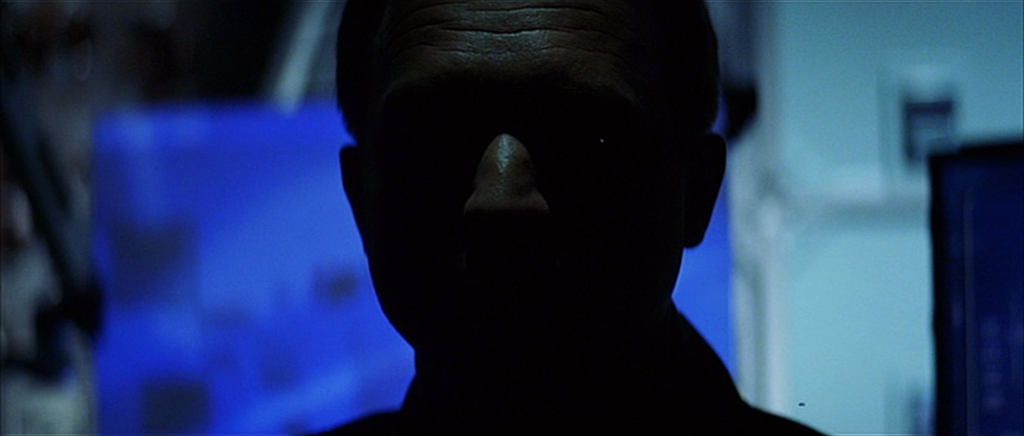I’m a fan of Solaris by Stanisław Lem.
I’ve probably read the book a dozen times.
Here’s a terse synopsis from Grok3:
Solaris by Stanisław Lem is a science fiction novel published in 1961. Set in the distant future, it follows psychologist Kris Kelvin, who arrives at a space station orbiting the mysterious planet Solaris. The planet’s vast, sentient ocean possesses the ability to probe the minds of the station’s crew and materialize physical manifestations of their memories and subconscious desires. For Kelvin, this takes the form of his deceased wife, Rheya, forcing him to confront unresolved guilt and grief.
The crew, including scientists Snaut and Sartorius, grapples with these “visitors” while attempting to understand Solaris itself. The novel explores themes of human limitation, communication with the unknowable, and the nature of consciousness. Rather than providing clear answers, Lem leaves the ocean’s intentions ambiguous, emphasizing the futility of humanity’s quest to comprehend something truly alien. It’s a haunting, philosophical work that blends psychological depth with cosmic mystery.
I saw the 2002 Solaris movie by Steven Soderbergh first.
I love the movie.
The planet is oppressive.
Clooney’s Kris Kelvin has an urgency and seriousness not in the book. His arrival to the station. His first visitation. My god that’s good stuff. It’s almost like a horror. It is horror.
The planet in the movie is beautiful. Truly, but tame in behavior compared to the planet in the book. I love how the book has sections on history/academics of the structures created by the planet.
The Cliff Martinez soundtrack to the film is beautiful. I’ve been listening to it for 20 years. It was the solaris and traffic OST that made me a fan of Martinez.
Anyway, as I said, there are scenes from the movie that give me chills.
Another is when Kris has a chat with the “returned” version of his friend, Gibarian. Cool names by the way. Kris Kelvin, Gibarian, Rheya/Harey.
Kris awakes to a shadowed figure in his room. It’s Gibarian, but we cannot and do not want to see all of him. Maybe it’s a dream.
Gibarian says:
Leave the light off.
He has a warning for Kris.
From the script (found via a google search):
KELVIN
What does it want from us?GIBARIAN
Why do you think it has to want something? This is why you have to leave. If you keep thinking there is a solution, you’ll die here.KELVIN
I can’t leave her alone. I’ll figure it out.GIBARIAN
That’s what I kept saying. Do you understand what I’m trying to tell you? There are no answers. Only choices.KELVIN
I’ll figure it out.GIBARIAN
You don’t know what you’re in for. It’s worse than death.
It’s that line:
"If you keep thinking there is a solution, you’ll die here."
And, a beat later:
"…There are no answers. Only choices."
Damn.
Great writing.
Coupled with great delivery by the actor Ulrich Tukur.
It gets me.
Here’s a still from that scene:

For me, “curiosity” would be enough to keep Kris there, it is for the other scientists, that and not wanting to bring “it” back with them to Earth. But for Kris, he want’s to stay with the returned version of his dead wife. Emotions. It’s better story telling. Solaris is just the context for Kris to work out his stuff, but the context is so damn great. I want more of that.
Anyway. it turns out, the above line “There are no answers. Only choices.” is a well regarded quote. Who knew? Not me. I guess I have taste after all :)
I think credit goes to Soderbergh’s screenplay. The man’s a genius!
It’s not in the book, at least my copy. But this exchange captures the sense of the book.
This warning is made to Kris by Gibarian in my copy of the book, but he does not utter the above lines. Maybe there are other translations that do?
“Gibarian?”
“Yes, it’s me. Don’t switch the light on.”
“No?”
“There’s no need, and it’s better for us to stay in the dark.”
“But you are dead . . .”
“Don’t let that worry you. You recognize my voice, don’t you?”
“Yes. Why did you kill yourself?” …
And on.
Anyway, why is this exchange (from the movie) so great?
It’s hard for me to put my finger on, but Grok3 did it for me (YAY!):
This exchange from the 2002 Solaris film, directed by Steven Soderbergh and adapted from Stanisław Lem’s novel, encapsulates the story’s central tension: the human impulse to seek meaning versus the reality of an incomprehensible alien entity. […] Solaris isn’t a problem to solve but a mirror reflecting human limits. Kelvin’s refusal to accept this sets up his tragic arc, while Gibarian’s words echo Lem’s idea that some mysteries resist human understanding, leaving only personal reckonings in their wake.
YES!
…the human impulse to seek meaning versus the reality of an incomprehensible alien entity
This is what I like out of my story telling. Why I love the southern reach trilogy so much. It is incomprehensible and yet the protagonists scramble around trying to figure it out.
Time for a re-watch and a re-read I guess :)